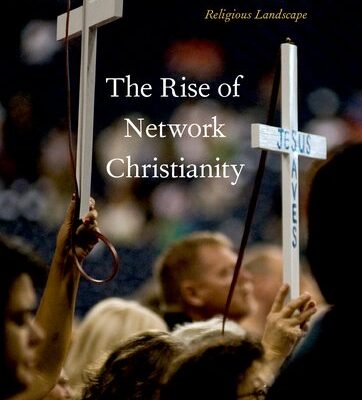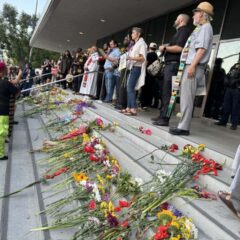A Christian movement has become one of the fastest-growing faith groups in the country recently, attracting millions of followers with promises of direct access to God. Christianity Today interviewed CRCC Senior Director of Research and Evaluation Richard Flory and fellow Brad Christerson about the movement and its self-proclaimed “apostles,” the subject of their book, The Rise of Network Christianity: How Independent Leaders Are Changing the Religious Landscape.
Christerson and Flory call the movement “Independent Network Charismatic” Christianity, or “INC.” In the interview, Christerson explains how such Christians identify themselves:
They would use the word prophetic or apostolic—or they would align themselves with one of the apostles. They would say, “I am a follower of Bill Johnson,” or Mike Bickle, or Cindy Jacobs. People would tell us, “he’s my apostle” or “he’s my prophet.” The other term we hear a lot is “spiritual covering”: There’s this idea that you are under spiritual covering of your specific apostle or prophet. A related term is “impartation.” The apostles basically impart their power to you. If you are under them, the power that they have straight from God trickles down to you.
They consciously avoid any kind of formal organization or denomination. They see the strength of weak ties—it allows them room to experiment and to work with all kinds of different people. They can focus on putting together these big events—they don’t have to support a staff or donate to a seminary. They can just go straight to the marketing activities.
A key component of INC Christianity is the experiences–healings and supernatural manifestations. Flory explained that this fits with a wider trend:
The desire for this kind of experience is broader than just this group. It works out in interesting ways among these INC Christians, but we see it across different religious groups that we have studied at the Center for Religion and Civic Culture. Particularly among evangelicals, we’re seeing a more experiential, embodied way of understanding religion.
Flory also commented on the romantic appeal of these sort of faith groups:
In some ways, it’s a really romantic vision. For most of the 20th century, most Pentecostals and evangelicals were pre-millennial—they imagined that God’s reign would appear in full only after the second coming of Christ. But the INC movement is explicitly post-millennial. In their minds, God’s kingdom can come to earth before Christ returns—and, by the way, it will be in America. There is this interesting combination of America first, Americans as God’s chosen people, and a romantic vision of God working it out through the people he chooses.




